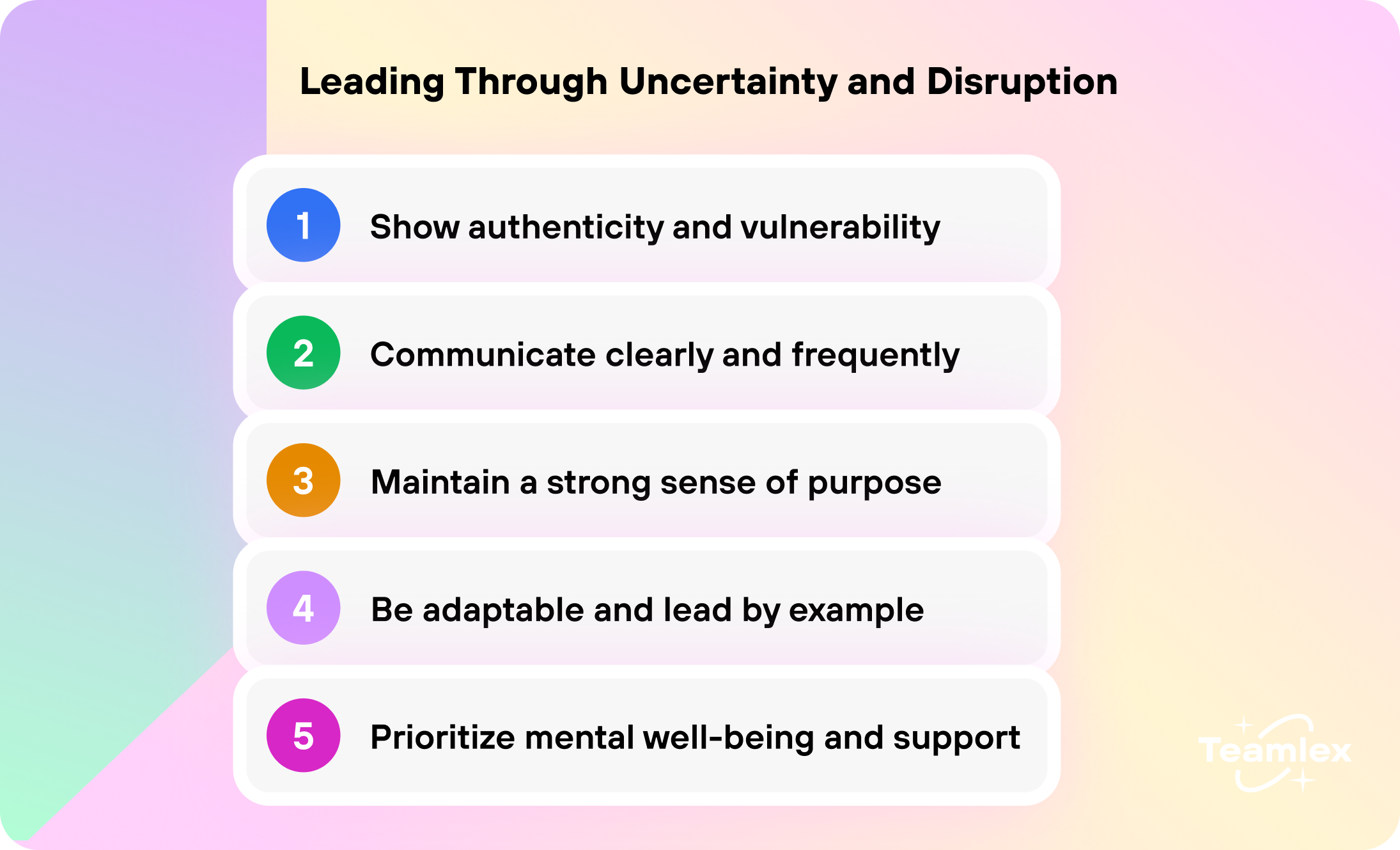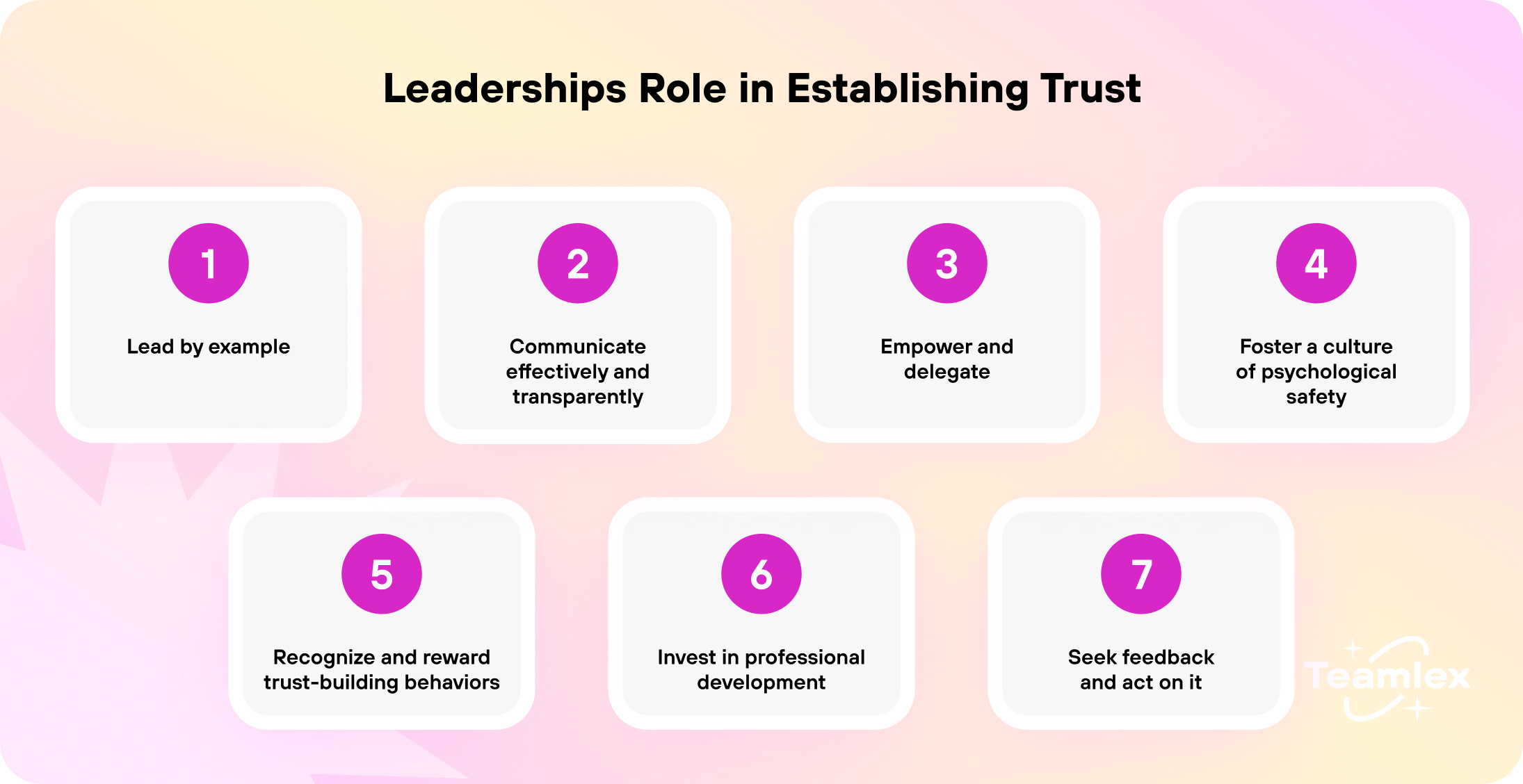In times of uncertainty, people naturally look to leaders for guidance and reassurance. Leaders who can inspire others, even amid chaos, are instrumental in keeping morale high and teams focused. Here are expert strategies top leaders use to inspire and support their teams during uncertain times.
1. Show authenticity and vulnerability
Authentic leadership resonates deeply in times of crisis. Leaders who openly acknowledge the challenges their team faces create a foundation of trust. Being transparent about uncertainties without overwhelming the team is a delicate balance but essential.

- Acknowledge reality: Address the situation head-on and avoid sugar-coating.
- Express empathy: Show understanding for your team’s emotions and challenges.
- Model resilience: Share your methods for handling stress or fear, showing vulnerability and strength.
2. Communicate clearly and frequently
Communication is key, especially when uncertainty clouds future plans. Top leaders keep their teams updated regularly, even if there isn’t a definitive answer.
- Provide updates: Keep information flowing; silence breeds anxiety.
- Use multiple channels: Communicate in various ways to ensure the message reaches everyone.
- Encourage questions: Open the floor for questions to address concerns directly.
3. Maintain a strong sense of purpose
Purpose becomes the beacon in challenging times. Effective leaders continuously remind their teams of the organization’s mission and the value of their work.
- Reiterate core values: Highlight what the company stands for to keep teams grounded.
- Connect roles to the mission: Explain how each person’s work contributes to the bigger picture.
- Celebrate small wins: Recognize progress, no matter how minor, to keep spirits high.
4. Be adaptable and lead by example
In uncertain times, flexibility is crucial. Leaders who adapt to new circumstances and embrace change set a powerful example.
- Stay open-minded: Show that you’re willing to change plans as new information emerges.
- Demonstrate resilience: Face challenges openly and maintain composure.
- Encourage creative problem-solving: Empower teams to think outside the box and find solutions.
5. Prioritize mental well-being and support
Uncertainty can take a toll on mental health. Leaders who actively support the well-being of their teams build a loyal and motivated workforce.
- Encourage self-care: Remind your team to take breaks and manage stress.
- Provide resources: Offer access to mental health resources or counseling if possible.
- Check in personally: Take time to understand individual struggles and offer support.
6. Cultivate a culture of trust and inclusion
Teams thrive in environments where trust is strong. Leaders who foster trust and make everyone feel included can motivate their teams to remain committed, even in turbulent times.

- Promote transparency: Make decisions openly, explaining the reasoning behind them.
- Listen to diverse voices: Include input from different team members and respect diverse perspectives.
- Value team contributions: Recognize the unique strengths each member brings to the table.
7. Set a vision for the future, even if uncertain
Leaders who can set a vision, even if it’s a flexible one, help guide teams through uncertain times. This vision doesn’t have to be perfect—it just needs to give direction.
- Highlight short-term goals: Focus on manageable, short-term objectives.
- Keep the long-term in mind: Reinforce the organization’s broader goals, even if timelines are flexible.
- Revisit and adjust as needed: Periodically refine the vision based on evolving circumstances.
{{cta}}
8. Encourage team resilience and adaptability
A resilient team can navigate through turbulent times more effectively. Leaders who foster adaptability in their teams empower them to handle challenges constructively.
- Provide learning opportunities: Offer training or resources to build new skills.
- Encourage adaptability: Promote a mindset of growth and resilience.
- Celebrate adaptability: Recognize team members who successfully navigate change.
9. Lead with empathy and compassion
Empathy is essential when dealing with people’s emotions, especially in times of uncertainty. Leaders who are compassionate help foster a supportive work environment.
- Show you care: Demonstrate genuine interest in the well-being of your team.
- Adapt your leadership style: Be flexible with individual needs, allowing space for unique challenges.
- Respond with patience: Understand that people may react differently to uncertainty and stress.
{{resource}}
10. Make decisions with courage and humility
Leadership in uncertain times requires both courage to make tough calls and humility to admit when things aren’t going as planned.
- Be decisive: Make the best possible decision with available information.
- Show humility: Admit when you don’t have all the answers or when you’re unsure.
- Learn from feedback: Seek and use feedback to adjust strategies as needed.




















3